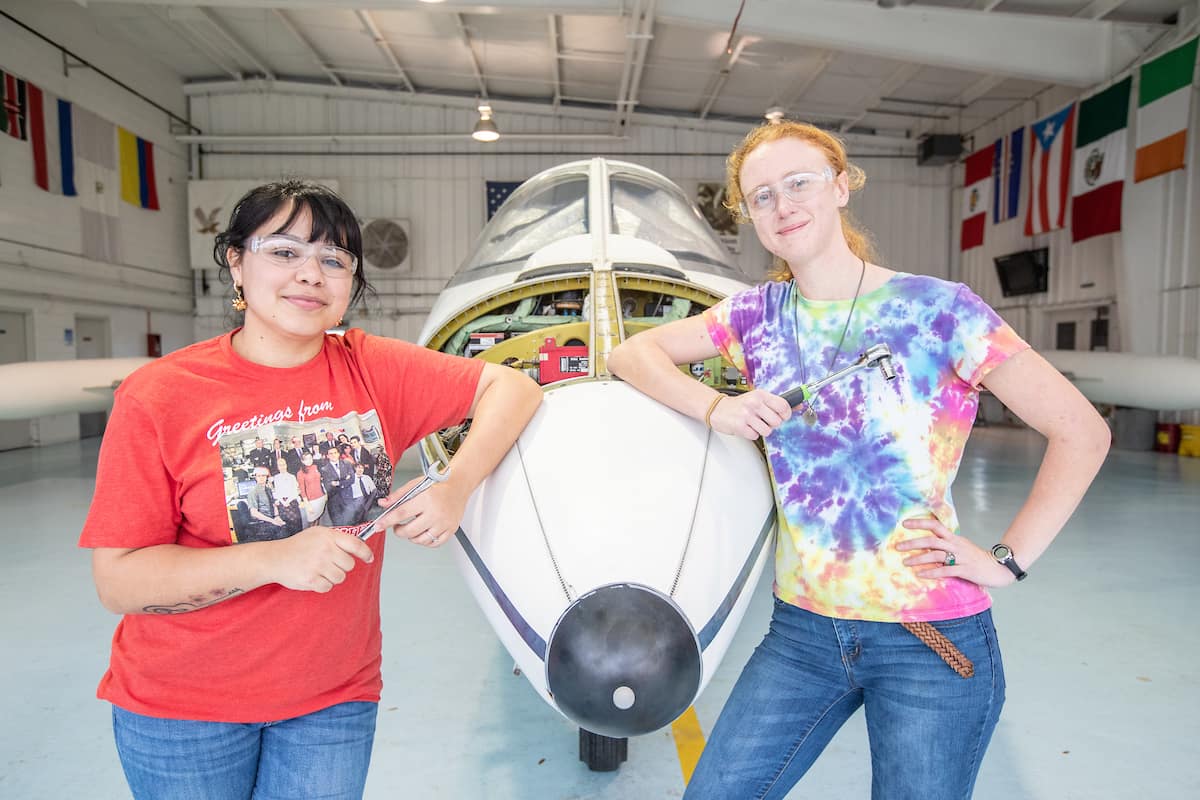Representation the Key to Expanding Diversity in Aviation, Experts Say

With a projected global need for 790,000 new civil aviation pilots and 754,000 maintenance technicians over the next 20 years, there has never been a better time in the history of aviation to embrace diversity, according to panelists in a recent “Supporting Diversity in the Aviation Industry” forum, hosted as part of a three-day NTAS (National Training Aircraft Symposium) event on Embry-Riddle Aeronautical University’s Daytona Beach Campus.
“How do we create awareness for our industry — particularly for girls, under-represented minorities and those in lower incomes brackets?” asked Michele Halleran, event moderator, professor of Aeronautical Science and the director of Diversity Initiatives for the College of Aviation.
With women representing only 6 percent of all commercial pilots and only 2.4 percent of all technicians worldwide, the question reflected an imbalance throughout the industry, and one that is representative of all minorities.
“Growing up, I didn’t know anyone in aviation that looked like me,” said Tomica Adams, from the Organization of Black Aerospace Professionals (OBAP). “I never saw another black pilot until (late high school). … But my mom told me that I could do it, and I believed her.”
Many panelists echoed the sentiment: If a young person can see it, they can be it.
“Representation matters,” said Martin Rottler, of Envoy Air and the National Gay Pilots Association (NGPA). “We need to be more representative of the communities in which we serve. We need to be there to support and be a respectful ally.”
Another misconception for those in the industry to overcome, however, is that flying is the only option for those with aviation aspirations.
“We’re not all pilots,” said Kirsten Kasper, from Florida NextGen Program. “If you want to be in business, if you want to be in engineering, there are a lot of great opportunities.”
Entrants to the field could also serve as flight attendants, air traffic controllers, airport managers and in a wide assortment of other professions, Adams added.
Laura Spolar, who works in aviation maintenance for United Airlines, agreed, suggesting that industry representatives should make more of a concerted effort to participate in career fairs, visit elementary and middle schools, even set up learning events at local youth groups.
“A group of pilots and aviators came to my town (when I was little) … and they showed me what potential capabilities were out there,” said Dr. Isaac Martinez, Embry-Riddle associate professor of Aviation Maintenance Science. “That, right there, made an impact.”
Creating entry points is important, Spolar noted, but making financial aid opportunities available to students is just as essential.
“Part of the education we need to do is in educating banks, lending partners about what a great industry this is,” said Dr. Nancy Shane Hocking, of JetBlue. “Helping them to understand the return on investment (in helping to replenish this workface) is going to be huge.”
Although progress never comes easy, the path becomes smoother with the help of a support system.
“I have been one of the few females in my career field for the past 30 years,” Spolar said. “You have to feel valued. You have to feel respected. You have to be treated with dignity. … People will want to excel if they feel valued.”
The panelists agreed, adding that a true culture of inclusivity starts from the top down.
“If your senior leadership is not leading by example … I can pretty much guarantee that you’re not going to be happy,” said Halleran.
“Having someone in your corner, having someone you can relate to, having someone that you can watch succeed … can be hugely beneficial in helping women and underrepresented minorities succeed in aviation,” Kasper added.
Learn more about Diversity and Inclusion efforts at Embry-Riddle.
 Mike Cavaliere
Mike Cavaliere